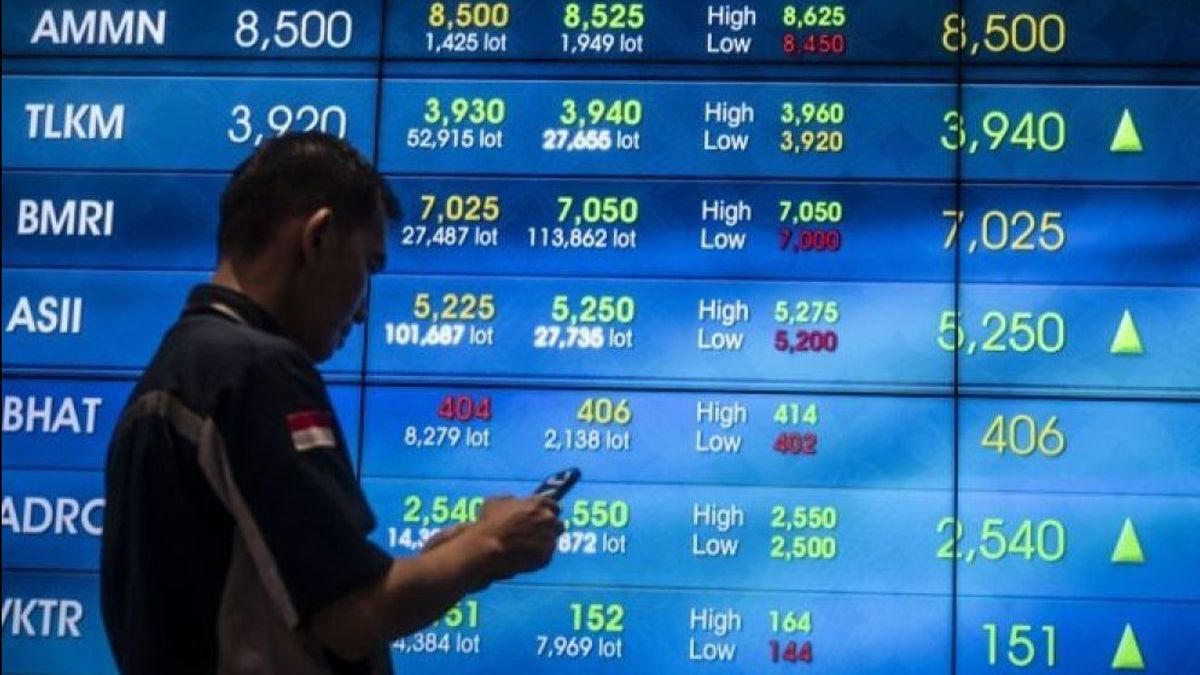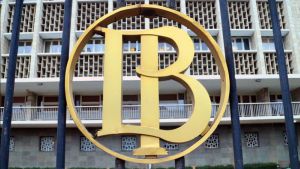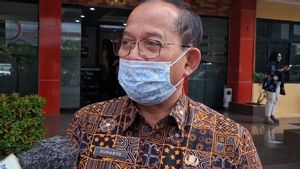JAKARTA - The Indonesia Stock Exchange (IDSS) is preparing an implementation of the Intraday Short Selling (IDSS) transaction, which is expected to have a positive impact on market liquidity and a fair price disclosure mechanism. This implementation is part of the IDX's strategy to implement a common practice on the regional exchange while providing more opportunities for market participants to take advantage of price volatility.
IDX Development Director Jeffrey Hendrik explained, Intraday Short Selling (IDSS) itself is a type of short selling transaction that must be completed on the same Exchange Day. In short selling transactions, investors sell securities that are not actually owned with the hope that prices will fall, so that the effect can be repurchased at a lower price for profit.
"Intraday Short Selling allows market players to be more efficient in taking positions without the need to use an Effect Borrowing (PME) mechanism. This makes the completion process faster and easier," Jeffrey said in a written statement in Jakarta, Monday, October 14.
Jeffrey continued, the basic difference between IDSS and short selling regular lies in the completion of the position. If in a regular short selling, the position completion can be done more than one Exchange Day and requires Borrowing and Borrowing Effects for transaction completion in T+2, in IDSS, the short position must be completed on the same day so as not to cause a handover obligation on T+2.
"In addition to offering efficiency, IDSS sees as a means to increase market liquidity and help market participants gain profits when market conditions are bearish," he said.
Then, continued Jeffrey, IDSS provides an opportunity for investors to transact in two directions, which not only increases liquidity but also helps prevent bubble formation due to unreasonable price increases.
"The implementation of IDSS is also expected to reduce the bid-ask spread in the market, which ultimately provides more convenience for investors in transactions. The implementation of IDSS is one way for the IDX to strengthen its role in providing reasonable, orderly and efficient markets," Jeffrey further said.
So far, Jeffrey explained that preparations for the implementation of IDSS have been running since the IDX imposed Regulation Number II-H concerning Requirements and Securities Trading in Margin and Short Selling Transactions and Regulation Number III-I concerning Margin Membership and/or Short Selling on October 3, 2024.
SEE ALSO:
The IDX has also prepared a risk management scheme for short selling transactions. The restrictions on short selling transactions will soon be released to give prospective AB Short Selling time to adjust its risk management," he added.
In addition, Jeffrey revealed, his party has followed up on concerns from Islamic investors regarding the IDSS implementation plan by not including sharia stocks in the list of effects that can be transacted short selling. The hope is that the separation of sharia effects in the short selling list can increase the confidence of Islamic investors in investing according to their respective strategies.
"Currently, the Stock Exchange will focus on the stage of implementing short selling on the IDX while conducting regular monitoring and evaluation for continuous improvement needs," he concluded.
The English, Chinese, Japanese, Arabic, and French versions are automatically generated by the AI. So there may still be inaccuracies in translating, please always see Indonesian as our main language. (system supported by DigitalSiber.id)
















